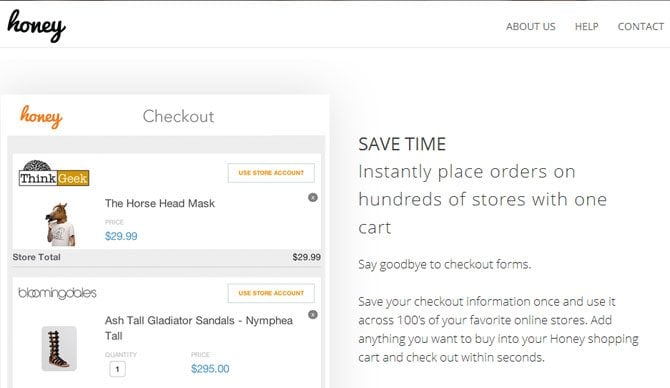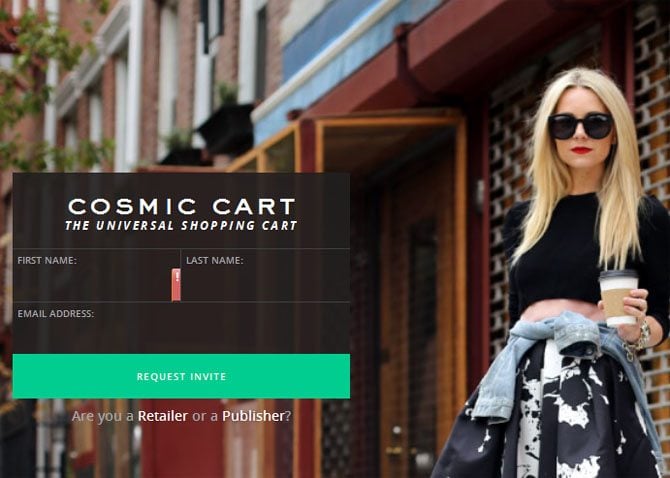eCommerce Utopia: A Universal Shopping Cart
Are you tired of shopping at local stores, because they are either too far away from your house, or do not offer products that would match your needs? Fortunately, we can avoid many troubles due to online shopping, but there’s still one drawback that no one can escape. It's none other than the absence of a universal shopping cart that would be perfect for any site.
Choosing a proper product may be a challenge, as everyone wants to get the best possible value for their money. We often have to conduct online research visiting numerous websites to find a proper item. Every online retailer requires its own registration making us enter all the personal details manually. After repeating this action over and over again, shoppers feel exhausted, and lose the wish to complete their purchase. Moreover, they waste an enormous amount of time that could be allotted to something useful.
Inventing a universal shopping cart is definitely an ideal solution for this problem. Just imagine how convenient it would be to shop at multiple websites in a single session. As a matter of fact, all the parties would benefit from such a cart. Customers would have an opportunity to save their efforts and time while retailers would be able to generate greater revenues as the majority of buyers abandon their carts before making a purchase.
Why Is There No Universal Shopping Carts?
Although eCommerce makes significant losses, universal shopping is something we still need to comprehend. There are several reasons why it’s problematic to introduce this tool for all the websites. Like:
- Different vendors use different identification systems for their products. If a shopper puts a generic product of a certain color or a size in a cart on one website, it’s impossible to generalize its characteristics and bring them to another platform.
- Too many details are also an obstacle on the way to create a perfect cart for online shopping. For example, it is a complicated task to calculate all the shipment rates and make proper payments to all the merchants taking part in the sale process.
- The main point of eCommerce consists in the value of assets one can sell, and, according to the latest tendencies in this field, shoppers and their data are regarded as assets. The thing remaining unclear is who will own information on customers’ behavior resulting from sales. Many retailers find it unacceptable to let someone else collect this data.
- Another issue to deal with is retailers’ fears that their reputation will get worse if transactions stop occurring on their sites. It’s important to show customers the place where their purchases are made.
- Designing a universal shopping cart may turn out to be tricky as every retail chain has its own preferences. As you know, it’s difficult to satisfy interests of everyone.
- One of the most controversial questions concerning a universal shopping cart is who will own it. A candidate for this position should have a huge user base and excellent reputation for retailers to trust it.
The First Steps on the Way to a Universal Shopping Cart
The best solution to the problem of creating a universal shopping cart is the development of a universal platform, which should have a relatively low profit margin in order to encourage retailers to popular platforms such as osCommerce, Magento, and OpenCart to a new one. Some companies have made the first attempts to create one place helping consumers browse products offered by many sellers, but not all though.
* * *
Mavatar
One of the so-called universal shopping carts developed not long ago is Mavatar. It assembles and keeps track of every product you add from affiliated retail chains including Bloomingdale’s, Macy’s, Nordstrom, Bergdorf Goodman, Neiman Marcus, and some others. The main advantage of this cart is its ability to find many bargains for a certain item giving you an opportunity to buy it for the cheapest price. Users of Mavatar can also create wish lists comprising products sold on different websites and compare them to lose sight of nothing and make a right choice in the end.
* * *
Honey
The Honey shopping cart is another great option making it possible to shop at multiple online stores and avoid tiresome filling of forms manually. It functions on more than 100 websites to provide you with a wide range of products to choose from. The feature presents shipment details of each store so that you can be informed of the date when your product arrives. Moreover, Honey doesn’t interfere with warranties, reward points, returns, and similar issues.
* * *
Lyst
People looking after their style of clothing will not remain indifferent about Lyst, a shopping cart allowing them to buy items from different fashion designers and brands in one place. This platform is meant for such retailers as Alexander Wang, Lane Crawford, Helmut Lang, Maiyet, Planet Blue, HUDSON Jeans, IKKON and many others. Everyone will find something special for themselves!
* * *
Cosmic Cart
Cosmic Cart also belongs to the category of the so-called universal shopping carts developed to relieve a burden put on online shoppers. The principle of its functioning is based on the technology allowing items to be tagged and added to a cart subsequently. The platform presents products of more than 85 brands so that customers can feel they aren’t limited in anything.
* * *
The Fancy
The Fancy will also help online shoppers avoid a hassle of adding every product they like to a new cart. The procedure is quite simple. Customers should click a ‘Fancy’ button to put items of different brands in one cart and confirm their purchase. After that, goods will be delivered to them regardless of their location in the world. It’s never been easier to enjoy online shopping!
* * *
Shopping online using different carts is a time-consuming procedure, that’s why online buyers long for a universal tool to facilitate this practice. Unfortunately, it hasn’t been invented yet, but many analysts expect its emergence in the next few years. Until then, we’ll have to settle for the carts retailers use on their online resources.
Get more to your email
Subscribe to our newsletter and access exclusive content and offers available only to MonsterPost subscribers.





Leave a Reply
You must be logged in to post a comment.